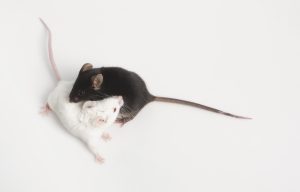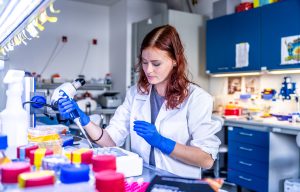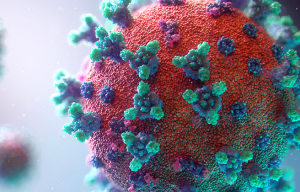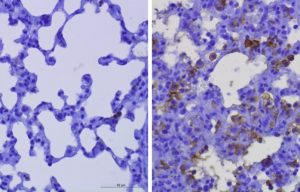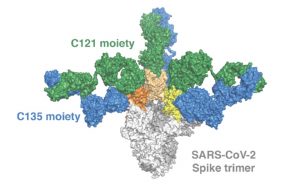Paper
Why are mice so important in biomedical research?
As the most common research mammal in the world, mice are key to many aspects of biomedical research and, in turn, scientific and medical advancements. Without mice, we would lack a crucial understanding of major diseases, including cancer and genetic disorders like muscular dystrophy, which has led to lasting benefits for humans and animals alike.… Read more
CCP researchers contributed to “Principles of Gender-Specific Medicine”
The researchers from the Czech Centre for Phenogenomics contributed to a new book “Principles of Gender-Specific Medicine – Sex and Gender-Specific Biology in the Postgenomic Era” (4th Edition – April 17, 2023, Elsevier) with a chapter “CRISPR Technology and Its Role in Treating Rare Imprinting Diseases”. Read more
Scientists discover rare antibodies that block all SARS-CoV-2 variant
More than ten million sequences of the SARS-CoV-2 coronavirus had to be examined by an international team of scientists to find universal weaknesses of coronaviruses that do not change even with frequent mutations and the emergence of new variants. Analysis of patient samples then revealed rare antibodies that block all previously known SARS-CoV-2 variants, as… Read more
Advances in modelling COVID-19 in animals
In a recently published review article, experts from the Czech Centre for Phenogenomics summarised all generated SARS-CoV2-related animal models to date, evaluated their suitability for COVID-19 research, and addressed the current and future state of the importance of animal models in this field. Nickl P, Raishbrook MJ, Syding LA and Sedlacek R (2022) Advances in… Read more
Bispecific IgG neutralizes SARS-CoV-2 variants and prevents escape in mice
Neutralizing antibodies targeting the receptor binding domain (RBD) of the SARS-CoV-2 Spike (S) are among the most promising approaches against coronavirus disease 2019 (COVID-19)1,2. We developed a bispecific, IgG1-like molecule (CoV-X2) based on two antibodies derived from COVID-19 convalescent donors, C121 and C1353. CoV-X2 simultaneously binds two independent sites on the RBD and, unlike its… Read more
Bispecific antibody prevents SARS-CoV-2 escape and protects mice from disease
Researchers from the Czech Centre for Phenogenomics contributed to the paper “Bispecific antibody prevents SARS-CoV-2 escape and protects mice from disease“ Raoul De Gasparo, Mattia Pedotti, Luca Simonelli, Petr Nickl, Frauke Muecksch, Julio C. C. Lorenzi, Federica Mazzola, Davide Magrì, Tereza Michalcikova, Jan Haviernik, Vaclav Honig, Irene Cassaniti, Elena Percivalle, Blanka Mrazkova, Natalie Polakova, Andrea… Read more
IMPC is a research infrastructures of global relevance
The International Mouse Phenotyping Consortium Global Research Infrastructures (IMPC GRI) addresses one of the grand challenges for biology and biomedical science in the 21st century – to determine the function of all the genes in the human genome and their role in disease. A recent report by the Group of Senior Officials on Global Research… Read more
CCP provides new targeting tools for ROSA locus
Dr. Radislav Sedlacek and his team from the Institute of Molecular Genetics has recently published new paper on gene targeting of Rosa26 locus using TALENs. Petr Kasparek, Michaela Krausova, Radka Haneckova, Vitezslav Kriz, Olga Zbodakova,Vladimir Korinek, Radislav Sedlacek. Efficient gene targeting of the Rosa26 locus in mouse zygotes using TALE nucleases. FEBS Letters. Published online: September 18,… Read more
New papers by team of Pavel Stopka
Our colleague Pavel Stopka and his team from the Faculty of Science of Charles University has recently published two papers related to CCP/BIOCEV project. Klinovska K, Sebkova N2, Dvorakova-Hortova K. Sperm-egg fusion: a molecular enigma of Mammalian reproduction. Int J Mol Sci. 2014 Jun 13;15(6):10652-68. doi: 10.3390/ijms150610652. Dvorakova-Hortova K, Sidlova A, Ded L, Hladovcova D,… Read more
